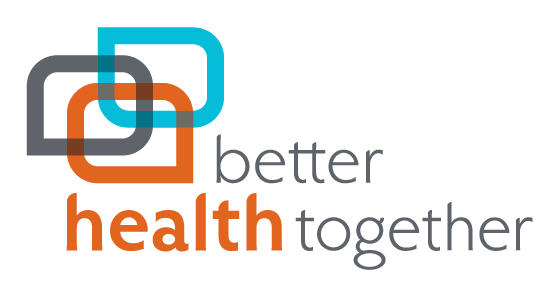Community Based Care Coordination Partners
Supporting Community Based Care Coordination in our Region
Let’s start with some context
As an Accountable Community of Health (ACH), BHT has been facilitating care coordination in the region since our founding. From our early days of insurance navigation and trusted messenger work, we have prioritized investing in and supporting the community based workforce and their supporting organizations who provide access to care and vital services to so many in our region.
Today, we have celebrated 12 years as an organization and invested almost $90 million dollars into health delivery systems and coordinated social care. We are looking forward to what is next for our region, and have been working alongside our other ACH partners throughout the state to develop ourselves as a Community Care Hub, connecting folks to the support and social services they need through a trusted and trained community based workforce.
You may be curious where our work as a Community Care Hub began – let’s take it back a step to explain.
Where we started
Care Connect Washington was a program developed early in the pandemic to provide food and other support to people with COVID-19 so they could responsibly isolate at home. BHT partnered with the Department of Health and several community partners to quickly create an access point for vital resources outside traditional systems of care such as housing assistance and fresh food delivery. As the pandemic services began to sunset, many organizations and large funders saw the effectiveness of the hub as a possible option for Medicaid transformation going forward.
In 2024, BHT continued working with the partnerships we had made during COVID through the Care Connect program to pilot a Community Care Hub, an approach that is being used throughout both the state and the country to help connect folks to services and organizations to one another.

Looking ahead
Throughout our outreach and feedback sessions with partners over the years, sustainable funding and contracting barriers have been identified as a major gap. For our partners, Community Care Hubs minimize the need to negotiate contracts with multiple providers. They also enable partners to have a sustainable business line for community based care coordination, paying them for the work they are already doing and providing their staff with upskilling opportunities to meet developing statewide standards.
In 2026, BHT will be expanding our approach to Community Care Hubs by opening the opportunity to all partners who are currently providing community based care coordination in eastern Washington. Our hope is to build a strong network of care, centralize data sources so we can identify equity gaps, and support partner capacity and growth so our region can thrive.
Applications for the 2026 Community Care Hub network (called the Social Care Network or SCN) will open in Fall 2025. The RFP will include a federal contracting readiness assessment, and an agreement to maintain statewide network standards and participate in network monitoring. In return, BHT is committed to supporting Community Care Hub partners with incentives, training, and funding for their community-based workforce.
Please make sure you are subscribed to our newsletter for more information in the months to come. There will also be a bidders webinar in September with more information. Stay tuned!
How it Works
Our focus is to reduce the burden on members of the network by simplifying the process of connecting patients to services by facilitating referrals and supporting partners. We also provide funding that is focused on the long-term, so CBOs don’t have to constantly pursue grants and other funding sources.
Through partnership with Better Health Together, community based organizations also learn the requirements of federal funding, so they are equipped to pursue additional funding streams at the highest level.
What BHT offers the Care Coordination Network
Workforce Support and Training
We support community based workers with funding and training
Data and Care Standards
We compile regional data to help our community-based organizations know what’s making the largest impact
Connection and Collaboration
We offer forums and opportunities for our network connect to share their experiences, challenges, and information
How it Works
Our focus is to reduce the burden on members of the network by simplifying the process of connecting patients to services by facilitating referrals, connecting health care and social service providers, and tracking progress to support healthier individuals and families. We also provide funding that is focused on the long-term, so CBOs don’t have to constantly pursue grants and other funding sources.
Through partnership with BHT, community-based organizations also learn the requirements of federal funding, so they are equipped to pursue additional funding streams at the highest level.
What BHT offers the Care Coordination Network
Workforce Support and Training
We support community-based workers with funding and training
Data and Care Standards
We compile regional data to help our community-based organizations know what’s making the largest impact
Connection and Collaboration
We offer forums and opportunities for our network connect to share their experiences, challenges, and information
